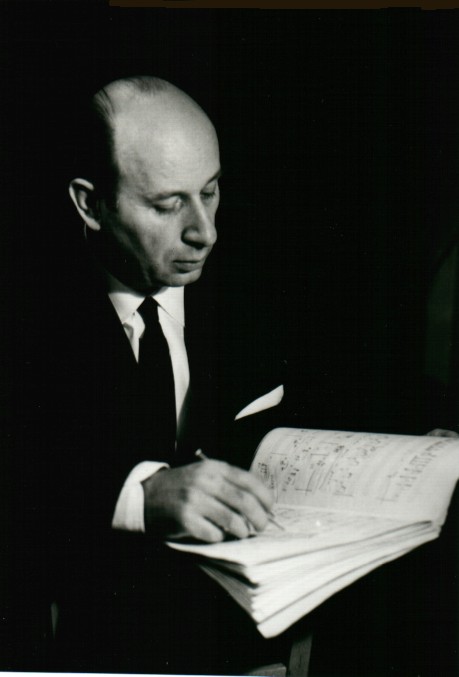Rudolf Brucci (Zagreb 1917 - Novi Sad 2002) was one of the most outstanding figures in the post-war music in former Yugoslavia; since 1950 when he moved to Novi Sad, his career has been closely linked with the music scene of the province of Vojvodina.
He graduated in composition from the Belgrade Music Academy and went on to study with Alfred Uhl in Vienna. Twice appointed director of the Novi Sad Opera, he was also principal of the Music School and in 1973 co-founder and subsequently Dean of the Academy of Arts in Novi Sad, where he taught composition.
He was member of the Academy of Arts and Sciences of Vojvodina and winner of many Yugoslav and international awards. He was the only Yugoslav composer to receive the most coveted international prize for composition - first prize at the Queen Elizabeth International Competition in Brussels, Belgium, in 1966, for his orchestral work Sinfonia lesta.
This composition is characteristic of his earlier expressive orchestral idiom from which he moved to oratorio forms, finally to achieve an entirely modern, synthetically organised music texture in his ballet masterpiece Katarina Izmailova 77, staged in 1977 at the Belgrade Opera with enormous success.
Brucci's oeuvre encompasses symphonic, oratorio and stage works as well as concerto, solo and chamber pieces. Among his most important works are Metamorphoses B-A-C-H for strings (1972), a composition verging on aleatory music, ballet Night on the Tracks, chamber opera Prometheus (libretto by Dejan Miladinovic), and cantata The Man is an Endless Horizon, a deeply moving music fresco.

